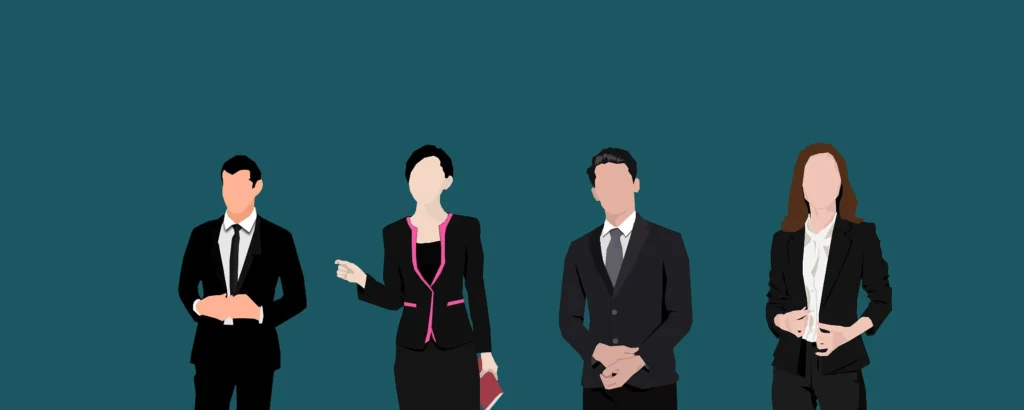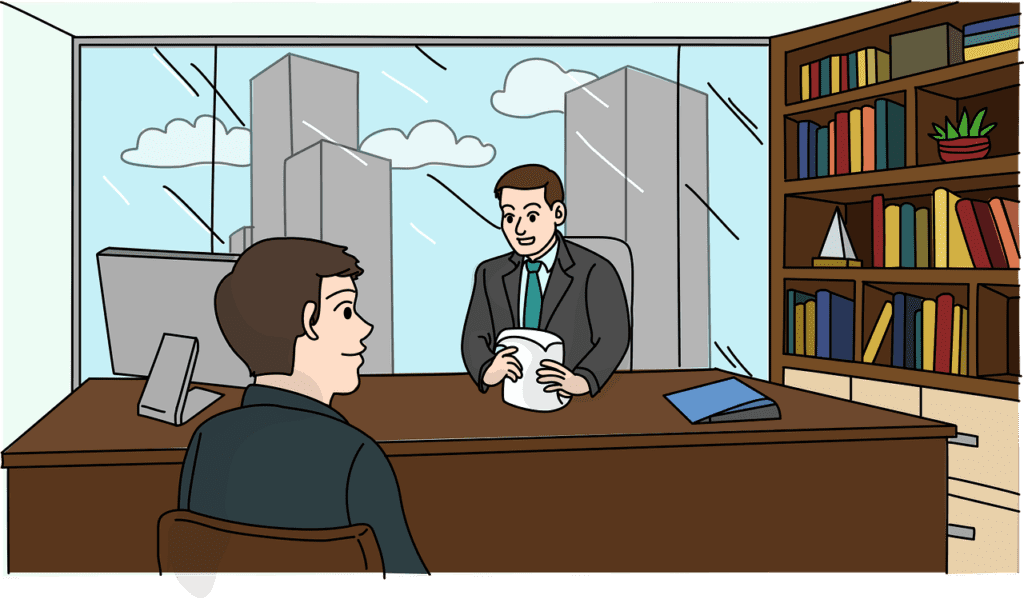Introduction – Interview Mastery
Preparing for a job interview is a crucial step toward securing a job opportunity. It can be challenging, but with the proper preparation and mindset, you can approach it confidently and increase your chances of success. If you’re a recent graduate, entering the professional world can be intimidating. Similarly, experienced professionals may seek advancement in their careers. In both cases, you can follow a few actionable strategies to prepare for an interview. These methods ensure you make a lasting impression.
How to Prepare for an Interview
To start with, it’s essential to have a methodical plan that caters to various stages of interview preparation. Preparing for an interview includes pre-interview groundwork, performance during the interview, and post-interview follow-up.
For fresh graduates, preparing for a job interview might mean familiarizing themselves with industry expectations and honing their communication skills. They should research the company they are interviewing for, understand the job requirements, and prepare answers to common interview questions. It’s also important to dress appropriately, arrive on time, and be polite to everyone you meet.
Meanwhile, corporate employees might focus on articulating their experiences and achievements in a way that resonates with the new role’s requirements. They should review their resume, update their skills and knowledge, and practice answering behavioral questions.
Here are some steps to take before, during, and after an interview:
Before the Interview
Research the company, the role, and the interviewer
Learn about their mission, vision, values, products, services, customers, competitors, etc. You can use their website, social media, news articles, annual reports, etc. to find this information. This will help you understand what they are looking for and how you can add value to their team.
Also, learn about the specific role you are applying for, the skills and qualifications required, the responsibilities and expectations, and the challenges and opportunities.
Finally, try to find out who will be interviewing you, including their name, title, role, and background. You can gather this information from the company’s website, social media, news articles, reviews, and other sources.
Practice common interview questions
One of the best ways to prepare for an interview is to practice common interview questions. A few questions are likely to come up in any interview, such as “Tell me about yourself,” “What are your strengths and weaknesses?” “Why do you want to work for us?” and “How do you handle stress and pressure?”
It is important to prepare your answers in advance. You can also use specific examples and achievements. This will demonstrate your skills and suitability for the job.
For a more in-depth look at potential questions and exemplary responses, be sure to read our detailed blog, “How to Ace Any Interview: The Ultimate Guide to Interview Questions.“
Dress professionally
When preparing for an interview, both men and women should consider their attire, which should reflect their professionalism and attention to detail.
For men, this typically means opting for a suit in a neutral color like navy, black, or grey. The suit should be well-fitted, with a tailored jacket and trousers, paired with a crisp, clean shirt. A conservative tie can add a touch of personality without being distracting. Shoes should be polished, and accessories like belts and watches should complement the outfit without overpowering it.
For women, professional dress can vary more widely but should always convey polish and precision. A suit with trousers or a skirt in a conservative color is a safe choice. Skirts should be knee-length, and blouses should be modest and not too tight or revealing. Closed-toe shoes are typically the most professional, and minimal jewelry can add a subtle elegance. Makeup and hair should be neat and understated, enhancing a look of preparedness and confidence.

Both men and women should ensure their clothes are free from wrinkles and stains and that their overall appearance is tidy. The goal is to present oneself in a way that is not only respectful to the interviewer but also boosts one’s self-assurance, allowing the focus to remain on the individual’s qualifications and responses during the interview process.
During the Interview:
Arrive on time
Arriving on time means at least 10 minutes before the scheduled time, whether it is an in-person, phone, or video interview. This will give you some time to relax, check your appearance, and review your notes. It will also show that you are punctual, reliable, and respectful.
If you are running late or have an emergency, make sure to inform the interviewer as soon as possible and apologize for the inconvenience.
Be confident and courteous
Greet the interviewer with a smile, a firm handshake, and eye contact. Introduce yourself and thank them for their time. Listen attentively to their questions and answer them with confidence and enthusiasm. Avoid using filler words like “um,” “like,” or “you know.”
Use positive body language, such as nodding, leaning forward, and mirroring the interviewer’s gestures. Don’t interrupt, argue, or criticize the interviewer or the company. Be polite and respectful throughout the interview.
Ask questions
At the end of the interview, you will usually have a chance to ask questions to the interviewer. This is an excellent opportunity to show your interest, curiosity, and fit for the role. You can ask questions about the company, the role, the team, the culture, the expectations, the next steps, etc.
You can find some examples of good questions to ask in an interview in the last section of this blog.
Avoid asking questions that are too personal, too obvious, or too negative. You want to leave a positive and lasting impression on the interviewer.
After the Interview:
Follow up
Within 24 hours of the interview, send a thank you email to the interviewer. Express your gratitude for their time and consideration. Reiterate your interest and enthusiasm for the role. Highlight your main qualifications and how you can contribute to the company.
Mention anything that you forgot to say or want to clarify during the interview. Keep it brief, professional, and personalized. This shows you are courteous, proactive, and serious about the job.
Reflect and improve
After the interview:
- Take some time to reflect on your performance.
- Think about what went well and what could have been better.
- Identify your strengths and weaknesses and how you can improve them.
You can also ask for feedback from the interviewer, if possible. Use this feedback to prepare for your next interview and improve your chances of success.
Essential Interview Kit
When preparing for a job interview, it’s important to be well-organized and equipped with the necessary tools to make a great impression. So, make sure you have the following items with you:
- Multiple copies of your resume
- A portfolio of relevant work
- A list of references
- Notepad and pen for notes
Tips to Calm Nerves
In addition to being prepared with the right materials, taking steps to calm your nerves is crucial.
To help you feel more relaxed and confident on the day of your job interview, try these tips:
- Practice deep breathing exercises
- Visualize a successful interview
- Rehearse your answers out loud
- Exercise or meditate on the day of the interview
Remember, thorough preparation transcends mere material readiness; it encompasses a holistic approach that includes mental and emotional readiness. By combining these elements, you not only prepare for the interview but also set a foundation for success. This comprehensive strategy ensures you are equipped to handle the interview process with confidence and poise.
Keytake Away
Preparing for a job interview is an investment in your future career. It’s a comprehensive process that, when done thoroughly, can significantly increase your chances of landing your desired job. By following these guidelines, candidates from all backgrounds can approach interviews with confidence and calmness, ready to make an impact.
For further reading and resources on interview preparation, consider exploring the following:
- LinkedIn Learning: Interview Skills
- Glassdoor: Company Reviews and Interview Questions
- Harvard Business Review: How to Prepare for an Interview
These resources can provide additional insights and strategies to help refine your interview preparation process.






1 thought on “How to Prepare for an Interview: Tips for Success”
Pingback: How to Ace Any Interview: 4 Most Common Interview Questions - Insight Trends